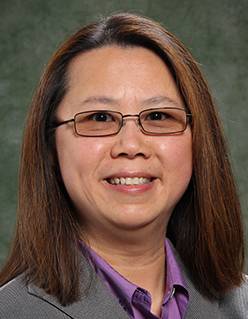As an industrial and systems engineer, you'll study complex systems and look for simplifying solutions across all environments and fields of study, including manufacturing, management, health systems and social sciences.
Degrees offered
Watson College offers its MS and PhD in Industrial and Systems Engineering in person and via Watson Online.
- PhD in Industrial and Systems Engineering (on-campus and online)
- MS in Industrial & Systems Engineering (on-campus and online)
- Engineering Management track (on-campus and online)
- Executive Health Systems track (Manhattan and online)
- Health Systems concentration (on-campus and online)
- Combined 4+1 BS ISE-MS Industrial and Systems Engineering Program for Binghamton undergraduates
Research Topics
- Applied Statistics and Design of Experiments
- Artificial Intelligence and Expert Systems
- Computer Integrated Manufacturing
- Data Analytics
- Data Mining
- Decision Support Systems
- Electronics Packaging and Manufacturing
- Energy Systems
- Healthcare Systems
- Human Factors and Ergonomics
- Machine Learning
- Manufacturing
- Manufacturing Process Control and Design
- Neural Network Modeling
- Quality
- Reliability
- Simulation
- Supply Chain Modeling and Management
- System Optimization
Master of Science in Industrial and Systems Engineering Curriculum
The Master of Science in Industrial and Systems Engineering provides the balance of theory and practical knowledge for the practice of the profession and/or for advancement to a doctoral program. In recognition of the high concentration of industry in the Binghamton area, this program has been structured to serve both full- and part-time graduate students. Taking advantage of this industrial resource allows the program to develop a realistic approach to integrating both engineering and non-engineering systems, such as those found in manufacturing, healthcare, supply chain management and transportation. This degree program is available in person and fully online.
Required courses
Students must complete four required courses while maintaining at least a B average. Students will choose between SSIE 553 and SSIE 561
- Loading Course Info...
- Loading Course Info...
- Loading Course Info...
- Loading Course Info...
- Loading Course Info...
Degree-completion options
- Thesis: Four additional graduate-level elective courses (at least one at 600-level), plus 6 credits of thesis work followed by oral presentation and defense.
- Project: Five additional graduate-level elective courses (at least one at 600-level), plus a project of at least 3 credits followed by oral presentation and defense.
- Coursework only: Six additional graduate-level elective courses, including at least one 600-level course that contains project-based coursework to serve as capstone for the termination requirement.
Sample electives
- Loading Course Info...
- Loading Course Info...
- Loading Course Info...
- Loading Course Info...
View current course offerings.
PhD in Industrial and Systems Engineering
The doctoral program in industrial and systems engineering offers a wide variety of research topics such as optimization, machine learning, human factors/ergonomics, supply chain management, healthcare systems, enterprise systems, intelligent systems, data science/analytics, and electronics manufacturing processes, particularly in the areas of printed circuit-board production and automated assembly. This degree program is also available fully online.
Degree requirements include:
- satisfaction of the learning contract, including proficiency in teaching and residence requirements
- pass a comprehensive exam
- presentation of a colloquium on proposed research
- acceptance of a prospectus outlining dissertation research
- submission of a dissertation, and
- defense of a dissertation at oral examination

Sarah S. Lam
Professor, Industrial and Systems Engineering Graduate Director

Erin Hornbeck
Administrative Coordinator